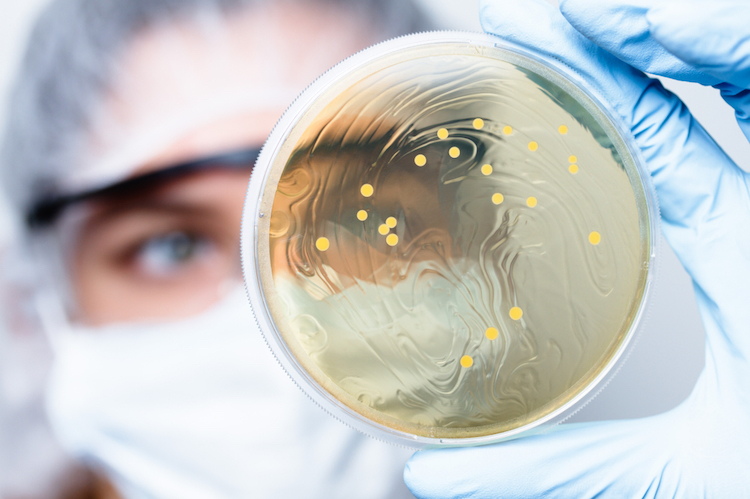WELBIO has received a truly unique form of acknowledgement: a newly discovered bacterium has been named after the research institute. The human gut microbe was discovered during a project led by Prof. Patrice Cani (WELBIO-UCLouvain), who proposed the name Dysosmobacter welbionis.
By Amy LeBlanc
What do David Attenborough, Barack Obama and The Beatles have in common? They all have organisms named after them! From the Richard Dawkins fish to the John Cleese lemur, scientists often name newly classified plants, animals and bacteria after celebrities to honor them. Now, with the discovery of the new human gut microbe Dysosmobacter welbionis, the Belgian research institute WELBIO has been equally recognized.
D. welbionis represents both a brand-new bacterial genus and species. The species name welbionis is derived from the WELBIO acronym (which stands for “Walloon Excellence in Life sciences and Biotechnology”). The genus name Dysosmobacter means “bad-smelling rod”, owing to the smelly nature of the rod-shaped microbe.
Bacteria with health benefits?
The newly discovered microbe is related to the Oscillibacter–Oscillospira clade, a group of elusive bacteria associated with health-promoting properties. Specifically, some of these bacteria, although never cultured, are positively correlated with leanness and negatively associated with inflammatory bowel disease and liver disease.
D. welbionis was isolated during a project aiming to investigate the link between gut microbes and metabolism. Like its sister species, D. welbionis produces butyrate, a type of short-chain fatty acid considered vital to maintaining a healthy gut. These types of butyrate-producing bacteria are increasingly being looked to for next-generation probiotics because of their anti-inflammatory properties.
“My post-doc Dr. Tiphaine Le Roy and I were very excited by the discovery of this novel bacteria from the human gut,” said Dr Cani, who led the WELBIO project. “We had the incredible chance, honor and privilege to propose a name for this live little organism living in our guts!”
“WELBIO has been supporting my research for 7 years and this discovery was only made possible thanks to the institute’s financial support. I immediately thought that this was a perfect time to honor WELBIO by naming the bacteria welbionis. Together with Tiphaine Le Roy, we are very happy that this name is now entered into the official and international taxonomy for novel prokaryotic taxa. This mean that, around the world, people are living with a bacterium that is now named Dysosmobacter welbionis; a nod to both Belgium and our Walloon region.”
Supporting good science
Dr. Cani’s project, funded by WELBIO, has made significant advances recently not only with the discovery of D. welbionis but also with another gut microbe called Akkermansia muciniphila. A recent Nature Medicine paper from the lab has shown that a daily dose of pasteurized A. muciniphila can decrease inflammation markers in the liver, decrease body weight and even lower cholesterol levels. The implications are important for the 50% of Belgians at risk of cardiovascular disease.
Read more about Cani’s work with Akkermansia in this previous BioVox article.
Multiple WELBIO projects have similarly experienced recent successes. Since it was founded 10 years ago, WELBIO has supported and assisted 51 research projects conducted by 39 principal investigators in several top Belgian universities. The institute currently supports 28 projects run by internationally recognized leaders in life sciences research. The first spin-off company to come directly out of a WELBIO project, ChromaCure, was launched last year. Cani elaborated on his involvement with WELBIO:
“I have been appointed member of the WELBIO institute since 2012. My projects are really focused on fundamental research, because I am convinced that this is where everything starts: all the current discoveries applied in health sciences are coming from basic sciences. My main motivation for conducting research is the hope that one day these discoveries will help people in need. WELBIO has this incredible ambition to support fundamental research projects with the view of transforming our discoveries into applications in all fields of biotechnology.”
When asked about the recent acknowledgement from Cani’s lab, Pierre Van Renterghem (Director of WELBIO) expressed an amused but appreciative stance:
“We think it’s great that Patrice Cani and Tiphaine Le Roy have named the new bacterium they discovered after the WELBIO institute. We see it as a highly symbolic recognition of the importance of WELBIO for the research community in Wallonia and Brussels. Feeling honored to have your name associated with a “bad-smelling rod” does of course require a bit of humor, but we are very proud of the acknowledgement!”


